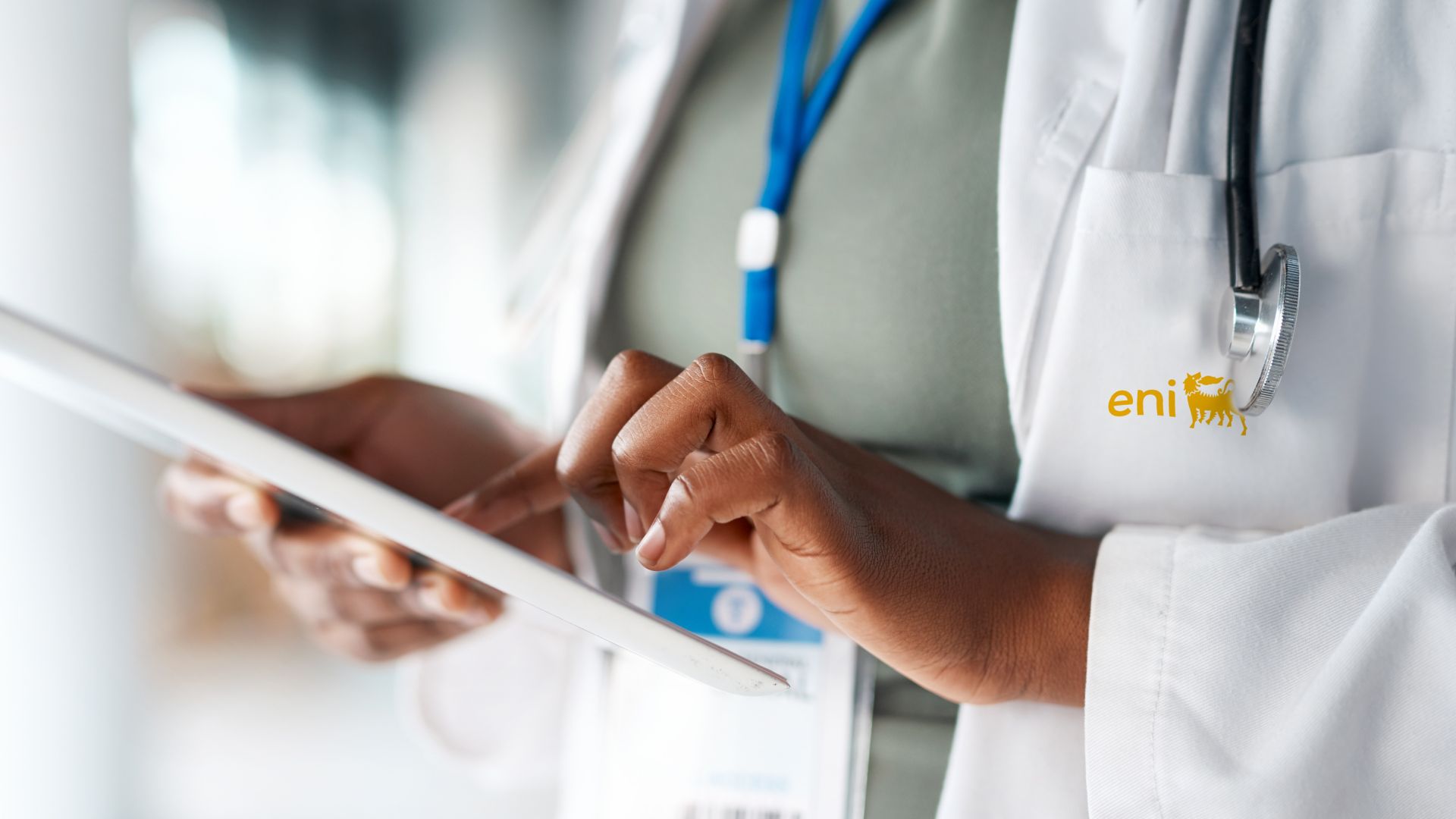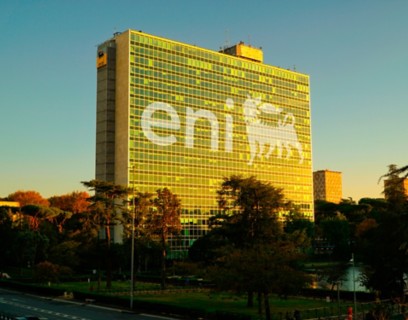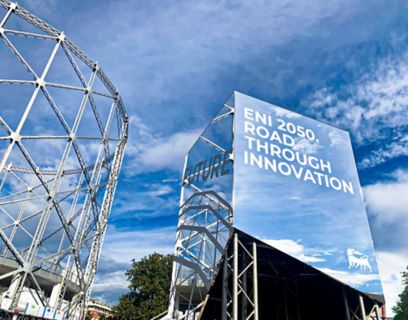
Health and safety are universal rights
In line with the SDGs of the UN 2030 Agenda, we consider health and safety to be fundamental principles and essential human rights. We support its protection and are committed to ensuring the well-being of all. We promote universal access to medical care in Italy and abroad. We promote prevention activities, early diagnosis and support primary care systems. For us, people are the starting point and the ultimate goal of all our actions. We spread the culture of health and safety as an indispensable value among employees, contractors, suppliers and local stakeholders with the aim of safeguarding everyone. We adopt models and tools for the evaluation and management of risks and we prioritise prevention over protection, promoting virtuous and conscious behaviour for zero accidents.
emergency response drills in 2023
safety-related expenditure in 2023
hours of safety training in 2023
Staying close to our people to protect their health and well-being Our health initiatives
Our health initiatives
In Italy every year we support health services, from occupational medicine to flu vaccination campaigns, as well as initiatives such as Previeni con Eni for oncological and cardiovascular prevention, Più Salute, a project aimed at home and digital assistance, the psycho-oncological support desk and the Helpline for victims of harassment and gender-based violence. In support of communities abroad, we focus on basic health care, maternal and child health protection, and the prevention of malaria and sexually transmitted diseases.
Health is integral to the energy transition
The energy transition is only fair and inclusive if it takes people's health into account. In collaboration with academia and research, we have continued our work to assess the potential impacts and opportunities related to the energy transition and new production technologies. This is why we are part of ‘Healthy people, Healthy Business’, a working group of the World Business Council for Sustainable Development (WBCSD). We focus on understanding how companies can take concrete action for global health through four key points:
- employee health and well-being
- strengthening the resilience of health systems
- healthy consumer behaviour
- relationship between health and natural systems.
Health is invaluable
The promotion and prevention plans we implement at every level are aimed at guaranteeing the physical, psychological and social well-being of our people, their families, and local populations, with particular attention to the most fragile contexts in which we operate. We promote concrete actions for health promotion, information and awareness and risk prevention every day.
In the countries where we are active, we support the socio-health services guaranteed by the local health/welfare systems, constantly seeking to improve the level of prevention. In particular, we pay attention to healthy lifestyles that prevent risk factors. In addition, we promote and encourage the regularity of specific medical check-ups, a central element in any prevention strategy, especially for major diseases such as cancer and cardiovascular diseases.
People are our focus
We affirm our culture as a 'caring company' by paying attention to each individual's aptitudes and constantly valuing skills and diversity.
A shared culture of safety
We are committed to ensuring the safety of everyone who works at Eni and for Eni, with a common and shared effort that contributes to the achievement of business objectives. To this end, we work to reduce accidents to zero and safeguard people, the environment and assets, specifically promoting the Stop Work Authority. To achieve this, we launched communication and awareness-raising initiatives, starting with our Safety Golden Rules and Principles and Process Safety Fundamentals, developed new projects and training courses in the area of behavioural safety, and implemented innovative digital tools.
The Process Safety Fundamentals
The PSFs are operational rules developed by Eni as part of the European Process Safety Center (EPSC) working group for preventing process accidents on plants. They are part of the daily routine of our operators and third-party companies working on the plants. Here are the main objectives:
- prevent releases (containment leaks) from process equipment
- increase the awareness of personnel involved in the operation of the plant
- foster a positive culture of attention to Process Safety and Asset Integrity issues.
To further strengthen the focus on process safety principles, a Vademecum on Process Safety Fundamentals was also drawn up, with technical insights into the main actions associated with hazardous plant operations.
Safety Golden Rules and Principles
Stop Work Autority
Stopping an activity wherever there is a reasonable doubt that people safety is compromised, is a fundamental principle for working safely.
Line of fire
Staying out of the Line of Fire and checking that all other workers do the same, are basic principles for working safely.
Working at height
Control and monitoring of the reliability of equipment and protection systems during work at height activities ensure the workers safety.
Energized systems
Implementation of procedures, controls and specialized personnel guarantee safety during activities where energized systems are present.
Fire safety
Fire risk must be assessed and control measures such as procedures and active/passive fire protection systems implemented.
Toxic gases
Procedures, staff training, specific collective and personal protective equipment are required to work in the presence of toxic gases.
Lifting operation
Lifting operations properly planned, implemented and monitored, prevent the workers risk of falling or being crushed or struck.
Confined spaces
Atmospheric testing, specific training on confined space activities, implementation of dedicated emergency procedures, are mandatory to work safely in a confined space.
Management of change
Any plant/organizational change must be identified, assessed and authorized.
Driving safety
Correct driving behaviours and proper vehicle management reduce the risk of accidents.
Permit to work
Work permit is an essential management tool to be adopted for activities execution.
Excavation safety
Soil characterization, protected excavation areas and correct use of machinery, guarantee the workers safety.
Transferability and applicability of principles and rules
The Principles outlined above have a cross-cutting character and apply to all work situations. The Principles are present in all the Golden Rules and are also their inspiration. The Golden Rules are the application of good practice criteria and highlight behavioural aspects of particular relevance to prevention.
Golden Principles and Rules are applicable:
- to every Eni employee and contract worker
- in all workplaces
- in every country, regardless of local regulations
- in any operational situation.
Safety over the entire life cycle
We constantly contribute to maintaining the highest safety standards at all stages of the product and asset life cycle.
Our safety standards
At every level, we contribute daily to maintaining safety standards at any stage of the life cycle of products and assets. The organisation and risk management models that analyse dangers and identify measures to avoid them are fundamental. Accident data is collected in databases and studied in an increasingly precise way in order to act preventively on potentially risky situations, also using the potential of artificial intelligence (AI). At the same time, we promote new tools to reduce injuries. In this regard, we have created:
a methodology for analysing behaviour and the Human Factor in relation to safety, based on the study of human reliability (THEME-The Human Error Model for Eni) in order to identify action strategies to strengthen human barriers and safe behaviour
a tool for investigating the root causes of accidents (RC-Eni).
A five-year protocol is currently in force, signed with Inail for the dissemination of the culture of prevention in the energy chain, in order to avoid accidents and occupational diseases, through communication initiatives and personnel training programmes.
Safety of suppliers and contractors
The value of safety is shared with suppliers and contractors. In addition to raising awareness and assessing companies on Health Safety and Environment management, we have set up the Eni Safety Competence Centre (SCC), a competence centre that provides services in the field of safety management and control at construction sites and for contract works, at our industrial sites both in Italy and abroad. Through the Safety Competence Centre we monitor and support the improvement process of companies, offering a standard methodology for managing activities and the use of tools that combine commitment and involvement, both technical and cultural, contained in the “Pact for Safety” and an Internet portal for managing the safety of contract workers.
Digital safety and technological innovation
Innovation is the basis for our personal and corporate growth. An important contribution to maintaining high levels of safety comes from new, increasingly digital-intensive technologies and the latest generation of equipment that increase the safety level of operators, such as:
Smart Safety, the digital system involving the use of wearable devices to alert workers in hazardous and emergency situations;
HSEni app, a mobile digital tool to report unsafe acts and conditions, fill in safety checklists and consult Eni’s Safety and Environmental Golden Rules and Process Safety Fundamentals;
Electronic Work Permit (e-WP), an application to support the process of compiling, managing and archiving work permits;
Safety Presense, an artificial intelligence tool that can predict recurring dangerous situations from weak signals recorded in security databases;
Digital HSE Risk Assessment, the digital tool supporting the risk analysis, assessment, compilation and reporting phases of our subsidiaries.
Process safety
With regard to process safety, we have developed and adopted a Management System to prevent and mitigate risks associated with uncontrolled releases of hazardous substances that may evolve into major accidents, with the aim of safeguarding the safety of people, the environment and assets. The widespread dissemination of process safety fundamentals, the process safety principles to be followed during on-site activities, and the development of a training course to disseminate the fundamental elements defined in the process safety management system, aimed at all technical/operational and HSEQ area personnel, continued. To minimise accidents and improve our performance, we have also addressed safety issues in fluid handling for new energy supply chains by revising process safety standards to include specific design requirements for hydrogen, CO2 and other substances from new supply chains.
Product safety and industrial hygiene
In terms of product safety, we are committed to managing risks associated with chemicals in purchase and sale, in line with European and non-European regulatory developments. To this end, we have also developed a tool for managing documentation and hazard characteristics and making Safety Data Sheets available to all stakeholders, in addition to launching a system to assess the ability to generate circular value in products and services through the value chains of chemical and petrochemical products.
With regard to industrial hygiene, we carry out activities to strengthen the monitoring and control of risk agents in the workplace, also through the implementation of targeted training programmes and through participation in working groups with national bodies for the preparation of reference guidelines on the subject.
Our emergency response
Emergency management is first and foremost about preparation. At the operational level, we have plans and procedures that define everyone's tasks, and we prepare appropriate means of response. At the central level, on the other hand, we provide support tools and structures, including the Eni Crisis Unit , which, through its transversal expertise, can provide a flexible contribution according to the specifics of the emergency. Emergency preparedness is regularly tested in exercises in which the ability to respond is assessed.
Natural hazards
Our procedures are integrated with national Civil Protection planning, with which we signed a four-year Memorandum of Understanding in November 2021. In particular, in Italy we have long participated in the activities of the Operational Committee for Civil Protection on the prevention, planning and management of emergencies arising from natural hazards, having adhered in 2008 to the Directive "Operational Guidelines for Emergency Management".
Safety over the entire life cycle
We constantly contribute to maintaining the highest safety standards at all stages of the product and asset life cycle.
Our safety standards
At every level, we contribute daily to maintaining safety standards at any stage of the life cycle of products and assets. The organisation and risk management models that analyse dangers and identify measures to avoid them are fundamental. Accident data is collected in databases and studied in an increasingly precise way in order to act preventively on potentially risky situations, also using the potential of artificial intelligence (AI). At the same time, we promote new tools to reduce injuries. In this regard, we have created:
a methodology for analysing behaviour and the Human Factor in relation to safety, based on the study of human reliability (THEME-The Human Error Model for Eni) in order to identify action strategies to strengthen human barriers and safe behaviour
a tool for investigating the root causes of accidents (RC-Eni).
A five-year protocol is currently in force, signed with Inail for the dissemination of the culture of prevention in the energy chain, in order to avoid accidents and occupational diseases, through communication initiatives and personnel training programmes.
Safety of suppliers and contractors
The value of safety is shared with suppliers and contractors. In addition to raising awareness and assessing companies on Health Safety and Environment management, we have set up the Eni Safety Competence Centre (SCC), a competence centre that provides services in the field of safety management and control at construction sites and for contract works, at our industrial sites both in Italy and abroad. Through the Safety Competence Centre we monitor and support the improvement process of companies, offering a standard methodology for managing activities and the use of tools that combine commitment and involvement, both technical and cultural, contained in the “Pact for Safety” and an Internet portal for managing the safety of contract workers.
Digital safety and technological innovation
Innovation is the basis for our personal and corporate growth. An important contribution to maintaining high levels of safety comes from new, increasingly digital-intensive technologies and the latest generation of equipment that increase the safety level of operators, such as:
Smart Safety, the digital system involving the use of wearable devices to alert workers in hazardous and emergency situations;
HSEni app, a mobile digital tool to report unsafe acts and conditions, fill in safety checklists and consult Eni’s Safety and Environmental Golden Rules and Process Safety Fundamentals;
Electronic Work Permit (e-WP), an application to support the process of compiling, managing and archiving work permits;
Safety Presense, an artificial intelligence tool that can predict recurring dangerous situations from weak signals recorded in security databases;
Digital HSE Risk Assessment, the digital tool supporting the risk analysis, assessment, compilation and reporting phases of our subsidiaries.
Process safety
With regard to process safety, we have developed and adopted a Management System to prevent and mitigate risks associated with uncontrolled releases of hazardous substances that may evolve into major accidents, with the aim of safeguarding the safety of people, the environment and assets. The widespread dissemination of process safety fundamentals, the process safety principles to be followed during on-site activities, and the development of a training course to disseminate the fundamental elements defined in the process safety management system, aimed at all technical/operational and HSEQ area personnel, continued. To minimise accidents and improve our performance, we have also addressed safety issues in fluid handling for new energy supply chains by revising process safety standards to include specific design requirements for hydrogen, CO2 and other substances from new supply chains.
Product safety and industrial hygiene
In terms of product safety, we are committed to managing risks associated with chemicals in purchase and sale, in line with European and non-European regulatory developments. To this end, we have also developed a tool for managing documentation and hazard characteristics and making Safety Data Sheets available to all stakeholders, in addition to launching a system to assess the ability to generate circular value in products and services through the value chains of chemical and petrochemical products.
With regard to industrial hygiene, we carry out activities to strengthen the monitoring and control of risk agents in the workplace, also through the implementation of targeted training programmes and through participation in working groups with national bodies for the preparation of reference guidelines on the subject.
Our emergency response
Emergency management is first and foremost about preparation. At the operational level, we have plans and procedures that define everyone's tasks, and we prepare appropriate means of response. At the central level, on the other hand, we provide support tools and structures, including the Eni Crisis Unit , which, through its transversal expertise, can provide a flexible contribution according to the specifics of the emergency. Emergency preparedness is regularly tested in exercises in which the ability to respond is assessed.
Natural hazards
Our procedures are integrated with national Civil Protection planning, with which we signed a four-year Memorandum of Understanding in November 2021. In particular, in Italy we have long participated in the activities of the Operational Committee for Civil Protection on the prevention, planning and management of emergencies arising from natural hazards, having adhered in 2008 to the Directive "Operational Guidelines for Emergency Management".
Eni for 2023. Browse the interactive feature
Discover the sustainability report that brings together our goals, commitments and achievements for a socially just energy transition.

Operational efficiency and sustainable growth
We work towards access to efficient and sustainable energy, fostering inclusive development in the territories in which we operate, ensuring the efficiency and integration of our activities, and creating opportunities along the entire value cycle.



















